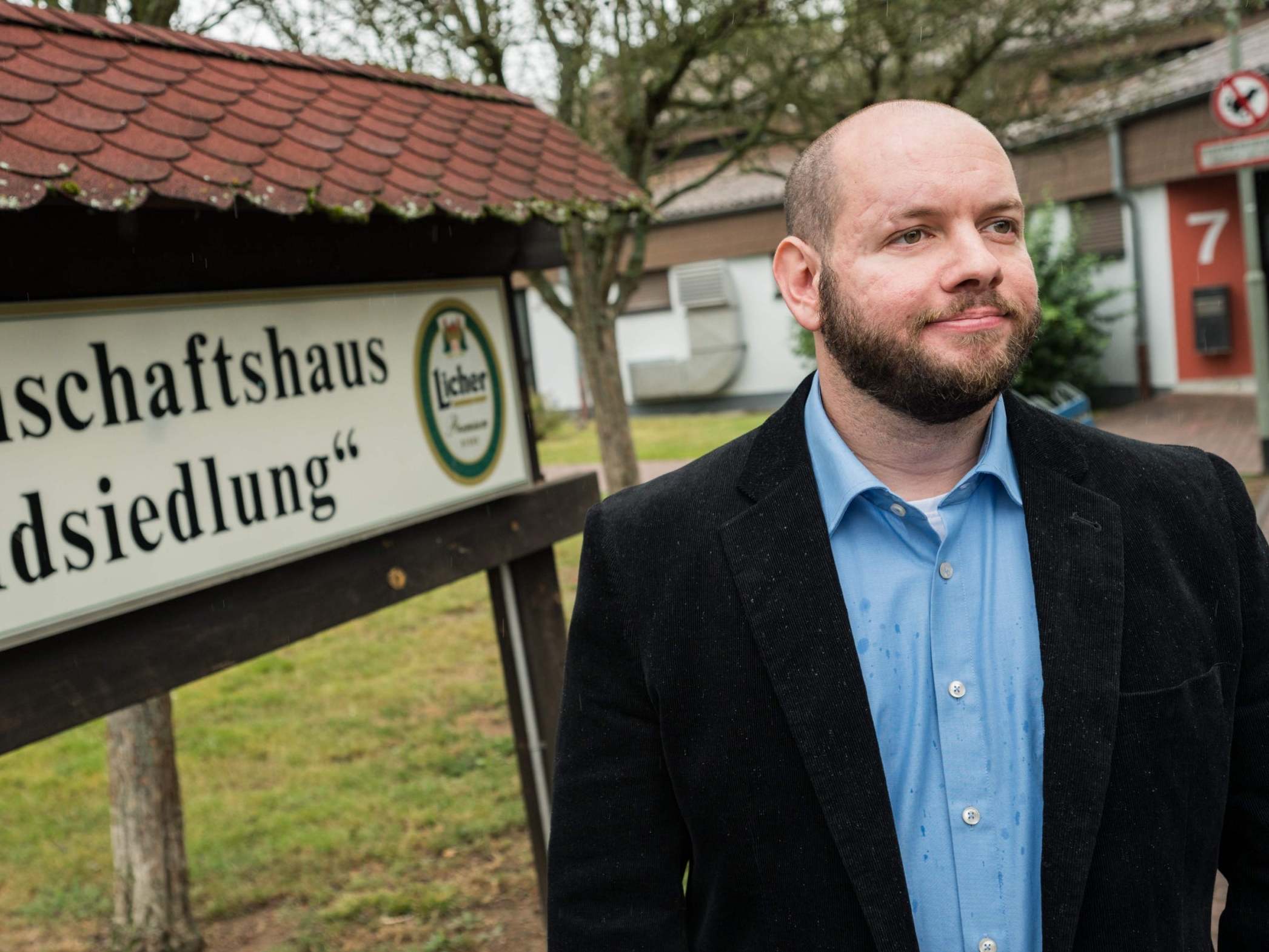Neo-Nazi elected as council chief in Germany ‘because he knows how to send emails’
'We have nobody else, particularly no younger people who are familiar with computers and who can send emails,' said one of the council members who voted in favour of the new chief

Your support helps us to tell the story
From reproductive rights to climate change to Big Tech, The Independent is on the ground when the story is developing. Whether it's investigating the financials of Elon Musk's pro-Trump PAC or producing our latest documentary, 'The A Word', which shines a light on the American women fighting for reproductive rights, we know how important it is to parse out the facts from the messaging.
At such a critical moment in US history, we need reporters on the ground. Your donation allows us to keep sending journalists to speak to both sides of the story.
The Independent is trusted by Americans across the entire political spectrum. And unlike many other quality news outlets, we choose not to lock Americans out of our reporting and analysis with paywalls. We believe quality journalism should be available to everyone, paid for by those who can afford it.
Your support makes all the difference.A member of a far-right party with neo-Nazi ties has been elected as the head of a local council in Germany for his ability to use a computer and send emails.
Stefan Jagsch of the National Democratic Party (NPD) was unanimously elected as a municipal administrator in the village of Altenstadt-Waldsiedlung, in Hesse.
He ran unopposed and was elected by a board of seven members, which included representatives of mainstream political parties, including Angela Merkel’s Christian Democratic Union (CDU) and the centre-left Social Democrats (SPD).
One of those who voted in favour of Mr Jagsch, was council member Norbert Szilasko, who told a local news network that the decision was based on skills not political views.
“[We voted for him] due to the fact we have nobody else, particularly no younger people who are familiar with computers and who can send emails,” Mr Szilasko said.
However, leaders from across Germany's political spectrum have condemned the election of a man who is a member of the NPD , a political party that in 2017 saw Germany's Constitutional Court rule the NPD's politics was contrary to the democratic principles enshrined in the country's constitution.
“Intolerable and completely unacceptable!” Ralf Stegner, the SPD deputy leader, said on Twitter in reference to the election of Mr Jagsch.
“This is completely incompatible with the basic values of the SPD! This damages the reputation of social democracy!”
Sven Mueller-Winter and Lucia Puttrich, two CDU leaders in Hesse, also declared their “shock and absolute lack of understanding” at the election in a joint statement, according to Deutsche Welle.
They added that the “wrong decision” had to be corrected.
Lisa Gnadl, the district’s SPD chief, said she was “completely stunned” by the turn of events.
Mr Jagsch claimed he would ”work for the interests of the town and continue to work constructively and across parties” in a statement posted on his official Facebook page.
On his personal Facebook page he can be seen in a photo holding a placard reading ”they say migration and they mean genocide,” an apparent reference to the pseudoscientific and often antisemitic “white genocide” conspiracy theory popular in neo-Nazi circles.
The NDP has also been consistently linked to neo-Nazi groups.
Mr Jagsch previously made headlines in 2016, when he was the victim of a serious car crash and was rescued by Syrian refugees travelling in a nearby coach.
At the time he had reportedly written racist statements on his Facebook page including “the boat is full,” “stop the asylum flood” and “integration is genocide.”
Altenstadt’s SPD leader Markus Brando said the board members were forced to write for the far-right figure because there were no alternative candidates for the post.
Following the backlash, the council indicated it would discuss the new appointment. However, the Telegraph reported, Mr Jagsch has threatened legal action if his appointment is reversed.
There have been concerns in recent years in Germany that extreme-right wing views and subsequently right-wing violence are on the rise in Germany.
Earlier this year, Politico reported that figures from an annual intelligence services' report on the protection of Germany's democratic constitution saw there were 100 more right-wing extremists in 2018 - up from 24,000 in 2017.
Of those described in the report as being right-wing extremists, around 12,700 people were classified as being "violence-oriented."
And, just last month Deutsche Welle also reported that in 2019 Neo-Nazi and other far-right groups had committed more than 8,000 crimes in the year to date.
Meanwhile the support for far right parties appeared to have grown in this month's regional elections in Germany, with the far-right Alternative for Germany posting its strongest electoral results since 2013, as it finished second in two regional elections in the east of the country.
This result suggests its anti-establishment message and support for its far-right political values have a good support base, in particular in the east of the country.
Join our commenting forum
Join thought-provoking conversations, follow other Independent readers and see their replies
Comments